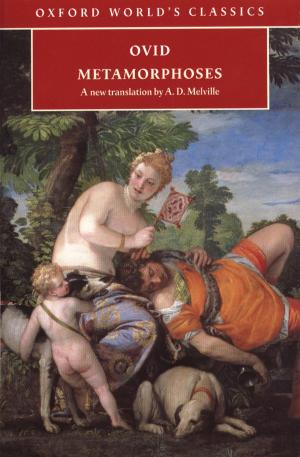| Author: | Luis Benítez | ISBN: | 9789874660657 |
| Publisher: | Pampia Grupo Editor | Publication: | August 10, 2018 |
| Imprint: | Language: | Spanish |
| Author: | Luis Benítez |
| ISBN: | 9789874660657 |
| Publisher: | Pampia Grupo Editor |
| Publication: | August 10, 2018 |
| Imprint: | |
| Language: | Spanish |
Well-established as a poet, essayist and novelist, the writer Luis Benítez needs little introduction. His books have been published in Argentina, Mexico, Chile, Uruguay, the United States and Venezuela. He was born in Buenos Aires, Argentina. Among other things, he is a member of the Latin-American Academy of Poetry, the International Society of Writers, and the Argentinian Foundation for Poetry. His work has brought him international recognition and he has been the recipient of many prestigious awards including the La Porte des Poétes International Award (Paris, 1991), the International Award of Fiction (Uruguay, 1996), the Primo Premio Tusculorum di Poesia (Italy, 1996) and the International Award for Published Work "Macedonio Palomino", (Mexico, 2008). Over the years, many of his poems have appeared in the small press magazines and journals in the USA and the UK but this is the first time that a substantial body of his work has been translated into English and presented as a full-length collection in its own right. The editorial team at Ravenna Press are to be congratulated on making a selection of his work available to the English-speaking world. This can only serve to enhance the poet's reputation by bringing his work to a wider audience. As with all great writers, his themes are universal. The way in which he chooses to convey these themes is masterful. Each poem has a conciseness about it, an ease which can be deceptive at first reading, because it belies the weight of the subject matter that lies beneath the surface. There is no florid language, no superficial excess; Benitez cuts to the chase and makes his statements with the minimum of fuss. "This Morning I Wrote Two Poems" is a good example. The almost conversational title might bring to mind William Carlos Williams (I am thinking of his poem "This is Just to Say…"). The conversational tone continues throughout the poem because the words fall easily down the page. It is, of course, a work that concerns itself with the mysterious craft of writing—where does the Muse come from and why is it that the finished object is more than the sum of its component parts? I wonder about the origin of those two things that are now on the table, not exactly made of paper and ink. Always modest about his own achievements and wise enough to know that the perfect poem is in all probability an impossible thing (but worth pursuing), he goes on to wonder About the men who have said it better and are now dead about the length of time, expressed in superlatives, that it can take for a work of art to come to its full maturity, and how, at the last, a poem can have a transformational effect which can be out of all proportion to its existence on the page: I wonder why, a short while ago, this world has changed twice. Animals and birds feature in a number of his poems. In all of them, they are celebrated for what they are. His powers of observance are acute, the shape of the heron is concisely described as resembling the letter "S"; a leopard is a beast always under the rain (because of its spots) and an insect whose diaphanous wings are almost transparent is hardly distinct from the air in his elementary design. There is a metaphysical feel to these poems. His consideration of the salmon, in "The Extravagant Upstream Traveller" is a beautifully honed metaphor for mankind "swimming against the tide" in a world threatened by pollution: Then I saw him in the oily water, a gift of industry and the hatred for what lives, climbing upstream: the impossible salmon… unusual iridescence amid the garbage of the condemned river… In "Aurochs" Benitez succeeds in capturing a real sense of antiquity. He reaches back to ancient Greece and Rome and also, perhaps, to primitive forms of writing. The animal knows what he writes because before he existed it was already a name.
Well-established as a poet, essayist and novelist, the writer Luis Benítez needs little introduction. His books have been published in Argentina, Mexico, Chile, Uruguay, the United States and Venezuela. He was born in Buenos Aires, Argentina. Among other things, he is a member of the Latin-American Academy of Poetry, the International Society of Writers, and the Argentinian Foundation for Poetry. His work has brought him international recognition and he has been the recipient of many prestigious awards including the La Porte des Poétes International Award (Paris, 1991), the International Award of Fiction (Uruguay, 1996), the Primo Premio Tusculorum di Poesia (Italy, 1996) and the International Award for Published Work "Macedonio Palomino", (Mexico, 2008). Over the years, many of his poems have appeared in the small press magazines and journals in the USA and the UK but this is the first time that a substantial body of his work has been translated into English and presented as a full-length collection in its own right. The editorial team at Ravenna Press are to be congratulated on making a selection of his work available to the English-speaking world. This can only serve to enhance the poet's reputation by bringing his work to a wider audience. As with all great writers, his themes are universal. The way in which he chooses to convey these themes is masterful. Each poem has a conciseness about it, an ease which can be deceptive at first reading, because it belies the weight of the subject matter that lies beneath the surface. There is no florid language, no superficial excess; Benitez cuts to the chase and makes his statements with the minimum of fuss. "This Morning I Wrote Two Poems" is a good example. The almost conversational title might bring to mind William Carlos Williams (I am thinking of his poem "This is Just to Say…"). The conversational tone continues throughout the poem because the words fall easily down the page. It is, of course, a work that concerns itself with the mysterious craft of writing—where does the Muse come from and why is it that the finished object is more than the sum of its component parts? I wonder about the origin of those two things that are now on the table, not exactly made of paper and ink. Always modest about his own achievements and wise enough to know that the perfect poem is in all probability an impossible thing (but worth pursuing), he goes on to wonder About the men who have said it better and are now dead about the length of time, expressed in superlatives, that it can take for a work of art to come to its full maturity, and how, at the last, a poem can have a transformational effect which can be out of all proportion to its existence on the page: I wonder why, a short while ago, this world has changed twice. Animals and birds feature in a number of his poems. In all of them, they are celebrated for what they are. His powers of observance are acute, the shape of the heron is concisely described as resembling the letter "S"; a leopard is a beast always under the rain (because of its spots) and an insect whose diaphanous wings are almost transparent is hardly distinct from the air in his elementary design. There is a metaphysical feel to these poems. His consideration of the salmon, in "The Extravagant Upstream Traveller" is a beautifully honed metaphor for mankind "swimming against the tide" in a world threatened by pollution: Then I saw him in the oily water, a gift of industry and the hatred for what lives, climbing upstream: the impossible salmon… unusual iridescence amid the garbage of the condemned river… In "Aurochs" Benitez succeeds in capturing a real sense of antiquity. He reaches back to ancient Greece and Rome and also, perhaps, to primitive forms of writing. The animal knows what he writes because before he existed it was already a name.















